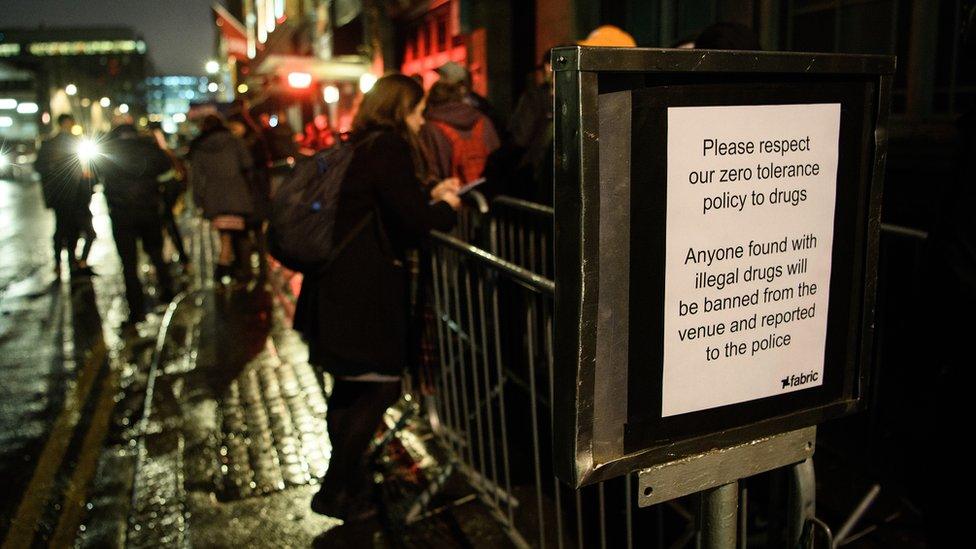Guess what? Not every music venue is under threat
- Published
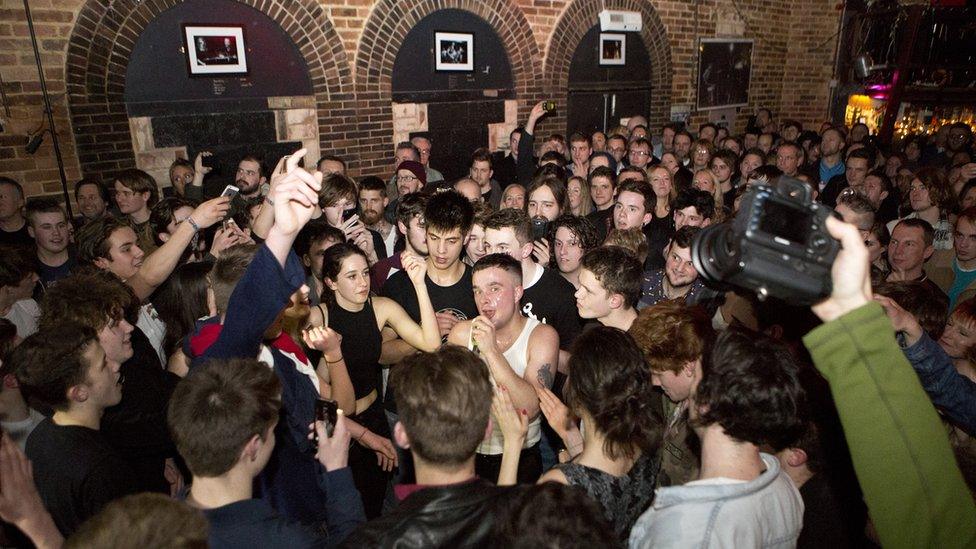
Laurie Vincent of Slaves gets up close and personal with fans at the Tunbridge Wells Forum
What was your favourite gig?
Chances are, it was somewhere small and sweaty - pressed up against the amps, watching beads of sweat roll off the singer's face - rather than straining to see Coldplay in the distant recesses of an anonymous enormodrome.
But small venues have been struggling in recent years. We've lost the likes of The Astoria in London, The Boardwalk in Sheffield, The Arches in Glasgow and The Cockpit in Leeds.
Why? A variety of factors: Greedy landlords, rising property prices, noise abatement orders and councils imposing unrealistic licensing restrictions.
Against this background, however, some venues are thriving. A report from the Mayor of London marking Independent Venue Week, external showed the number of grassroots music venues in the capital had remained stable for the first year since 2007.
To find out more, we spoke to two of the UK's most successful concert halls: The Brudenell Social Club, external in Leeds, and the Tunbridge Wells Forum, external in Kent.
With space for 250 to 400 customers, they've hosted shows by Adele, Oasis, Muse, Foals, The Cribs and dozens of up-and-coming bands.
What are they doing right? And how can others learn from their example?

Look after the bands

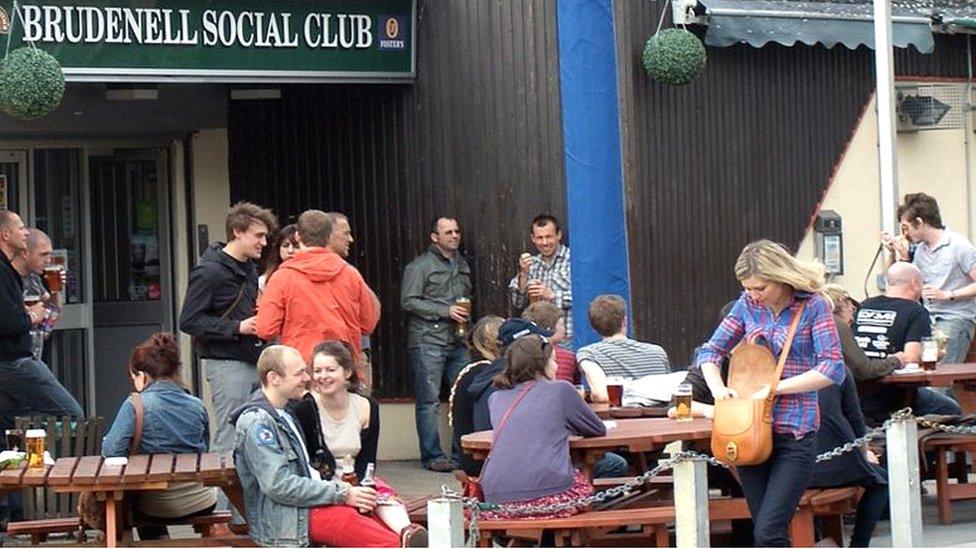
"Every band that comes through our door is treated the same, regardless of their status," says Nathan Clark, who took over the running of the Brudenell Social Club from his parents in 2004.
It's the little touches that count, "like the wifi being personalised... and having things like a microwave and washing facilities", he explains.
Unlike other venues, the Social Club doesn't demand a percentage of the money bands make from selling t-shirts and CDs after the show.
"If the bands can come out and speak to their fans, it builds a rapport. And when that happens, they sell more merch," says Clark.
"So if we double their revenue, they're keen to come back."

Don't expect to get rich

"I'm not sure whether you can make money from grassroots venues," says Jason Dormon, who set up the Tunbridge Wells Forum 25 years ago.
"You either put on shows that are going to make money, or you invest in new and young talent. The two don't work together."
"We make a profit but then we reinvest it," adds Clark. "Everyone gets paid fairly. All the staff get the living wage. "
"If we were just to chase money the feeling would be totally different," Dormon explains. "From the volunteers to the fans. People probably wouldn't hang around as much."

Don't book artists your audience won't like

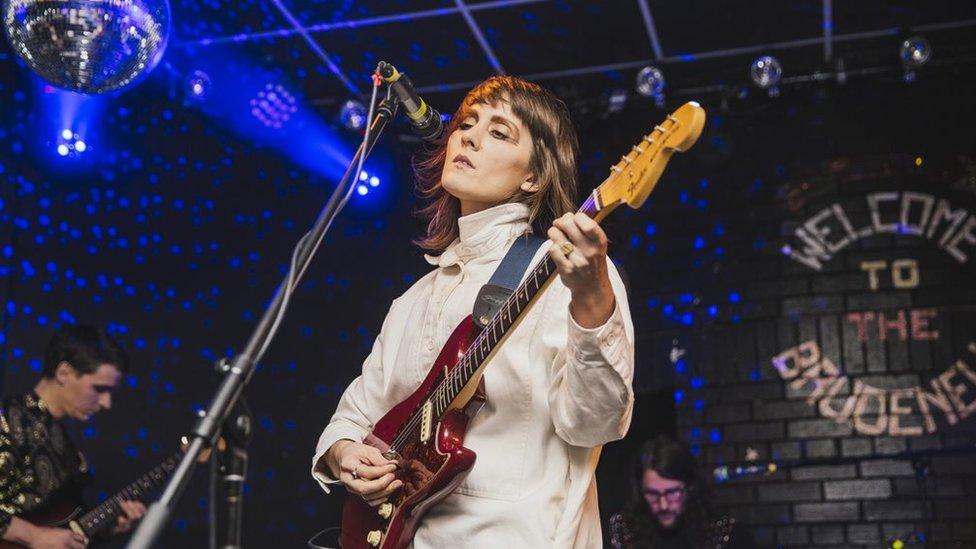
Cate Le Bon plays at Leeds' Brudenell Social Club - now in its 104th year
It might seem obvious - but some venues just book the bands on the touring circuit, rather than forging their own musical identity.
"People come back because they have a degree of trust in our taste," says Clark. "We're very active on social media: 'You should listen to this artist,' or, 'We think this is great music'. It doesn't necessarily have to be a big band, it just has to be great music."
"As a smaller venue, we have to be more connected with the community," agrees Dormon. "We listen to the bands, we listen to the local community, we listen to the music fans that come through the door every weekend."

Give young bands a break

"It's great to have big names coming through," says Dormon, who has hosted low-key warm-up shows for bands like Ash, Foals and Mumford & Sons.
"But it's important for local bands to get to play with them, because they're the touring acts of tomorrow. They're learning off one another, so to speak."
"There's lots of times we'll suggest good local bands to the artists who come in on tour," agrees Clark. "You create a green scene of local bands who breed. They become fond of the venue because you give them support and, even if they grow, they'll come back and play smaller shows here."
In 2007, The Cribs repaid the Brudenell's faith in their band by staging three Christmas shows at the venue, with support from Franz Ferdinand, Kate Nash and Kaiser Chiefs.

Get tips from the musicians

"I'll chat to a band after a gig and find out what's happening in their town," says Clark. "Like, 'What bands should I be listening to from San Francisco? What gigs are you going to?'
"They'll name bands we've never heard of, but if you trust their musical taste, you check them out and you build the bedrock of your relationship from there."

Buy your venue (if you can)

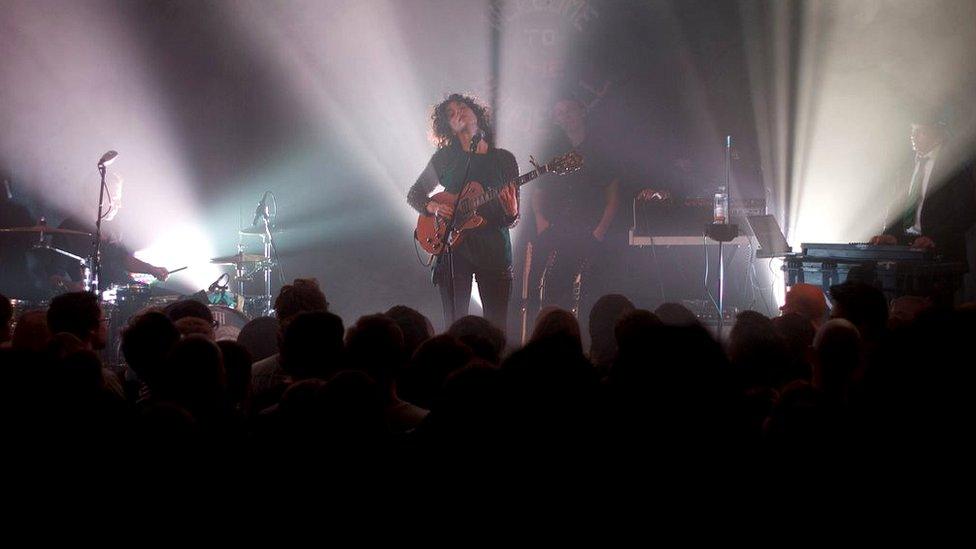
Internationally famous artists like St Vincent have swung by the Brudenell Social Club
"The Brudenell is now paid for [so] we haven't got rent and some ridiculous landlord who'll hike the rent when the venue's doing well," says Clark.
"Some venues might have a landlord that might say, 'I'm better off developing this space into flats because I'll get more from that than I get in rent from you,' says Dormon, who bought his property (a former public toilet) from the council.
"In the future, I'd like to see venues being bought by a national trust, so the spaces can be protected."


More on Independent Venues Week
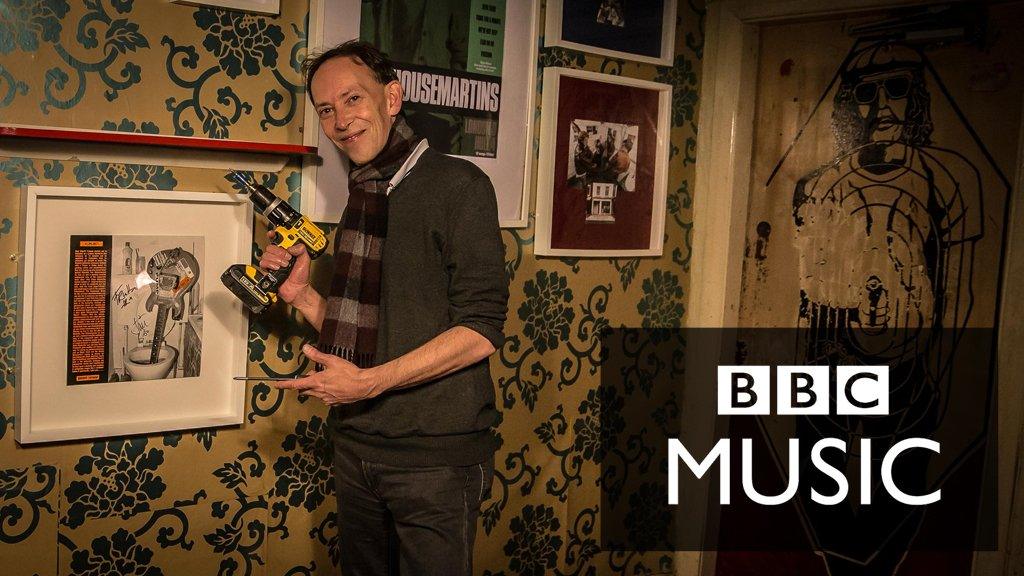
BBC 6 Music's Steve Lamacq is touring some of the UK's best-known venues, including the Brudenell Social Club and the Jericho Tavern in Oxford (home to Radiohead's first-ever gig, external) to find out the problems they face. Tune in all week from 16:00 GMT.
Stars including Declan McKenna and You Me At Six discuss the importance of small venues - BBC Newsbeat.


Invest, invest, invest

"Some venues don't see any benefit in investing £60,000 in a new PA that's going to take five or six years to pay back," says Clark, "But when artists come somewhere like here, where everything's new and shiny and sounding top-end, they want to come back and play regularly."

It takes commitment

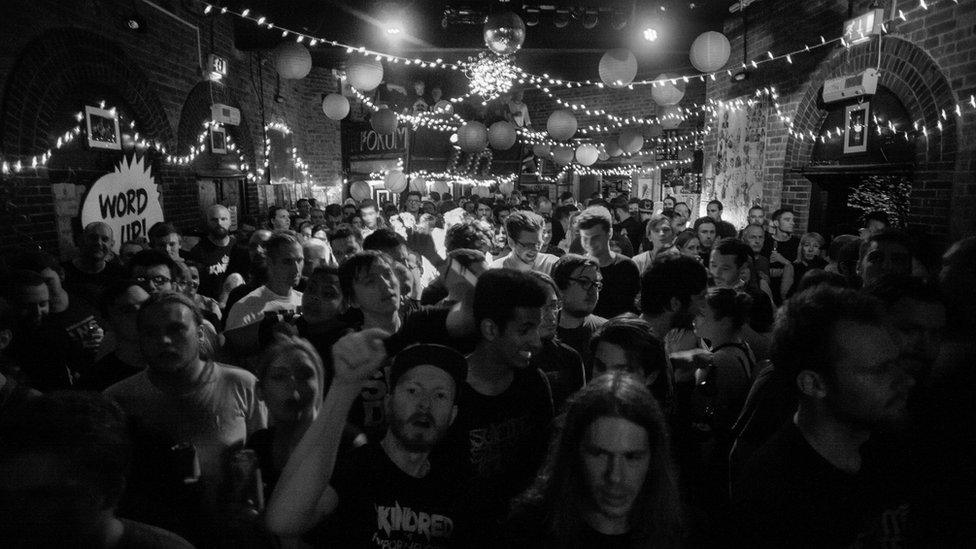
"We're seen as a cultural asset," says Jason Dormon of the Tunbridge Wells Forum
"I live at the venue, and it's part of my life. It's been part of my life for 20 years," says Clark. "In some ways, it gets in the way, but it enhances my life as well. There's a lot of friends that have come from promoting shows and meeting people in bands."
"It's my whole life," agrees Dormon, who given all of his spare time to the Forum - as a volunteer - for a quarter of a century.
"I have another job and I just about get by, but I'd much rather be involved with music and see music in my town than have nothing."

Don't annoy the neighbours

"We always struggled with perception," says Dormon, who remembers when his venue was considered "the dirty rock and roll club down the road".
But the owners worked hard to develop a place in the community - from hosting local events to installing disabled toilets.
Recently, the owners decided to make the venue a Community Interest Company, external, which means all the money made at the venue is reinvested, rather than going into the owners' bank accounts.
"Now we're seen as a community asset, a cultural asset," says Dormon. "People want to get married in The Forum, because it's a unique place.
"And older people, music fans, are coming in because the perception is we're a music venue. We're there for them."


Follow us on Facebook, external, on Twitter @BBCNewsEnts, external, or on Instagram at bbcnewsents, external. If you have a story suggestion email entertainment.news@bbc.co.uk, external
- Published11 January 2017
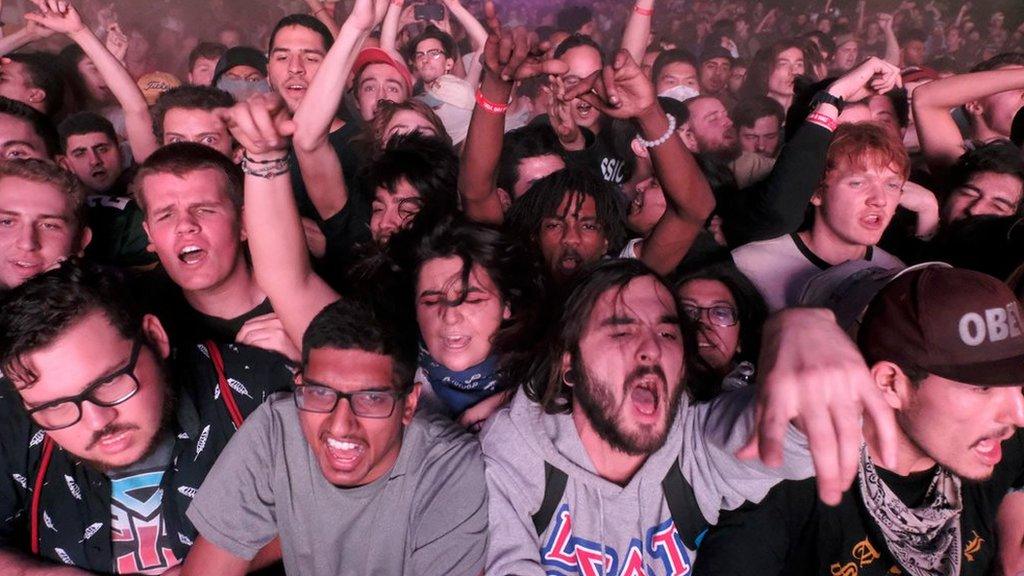
- Published23 January 2017

- Published7 January 2017
